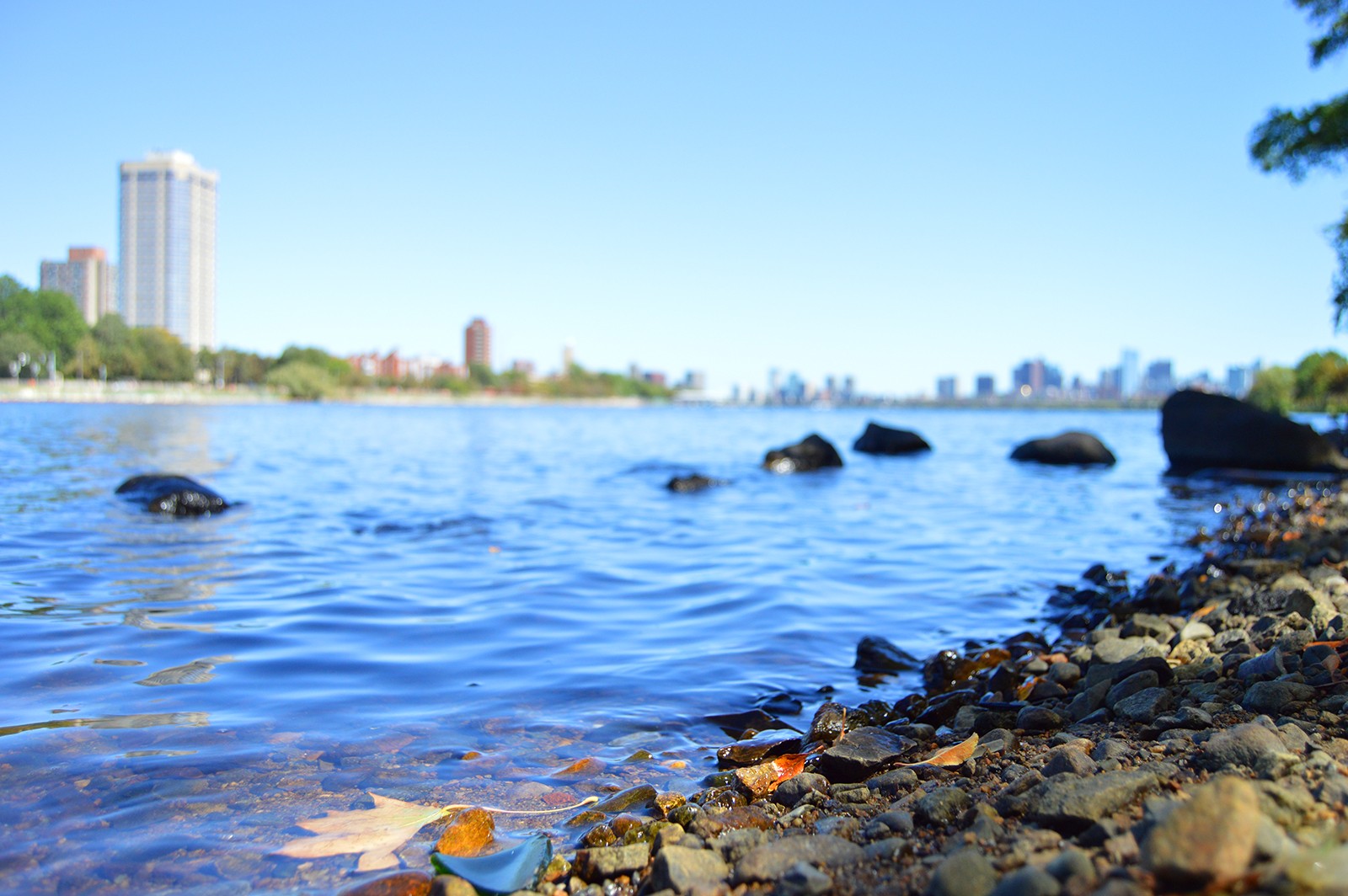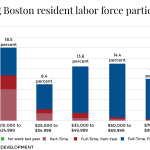
Cyanobacteria, a photosynthetic bacteria that can release toxins while in bloom, has been found along the lower Charles River by the Charles River Watershed Association, according to CRWA Aquatic Scientist Elisabeth Cianciola.
The unusually warm weather and drought in Massachusetts could be part of the reason why the cyanobacteria have been blooming in such high concentrations along the Charles, Les Kaufman, a biology professor at Boston University wrote in an email.
“While rainstorms can trigger blooms by washing extra nutrients into the water, I can imagine that drought might also be a trigger, by concentrating nutrients,” Kaufman wrote. “Warmth is a major contributing factor in cyanobacteria blooms, and we have been experiencing ever-warmer summers due to anthropogenic (human-caused) climate change.”
The recent outbreak is not entirely unexpected, since there have been about six blooms of cyanobacteria in the Charles in the last nine to 10 years, according to Cianciola.
“This is the typical time of year when you would see a cyanobacteria bloom, when the river is at its lowest depth and has its lowest water flow,” Cianciola said. “The cyanobacteria are present in the river year round but they only reproduce and form this critical mass around this time of year.”
While cyanobacteria do have the potential to be toxic, Cianciola said the CRWA has not detected any toxins from this particular bloom. But as a precaution, CRWA is urging people to be more careful around the Charles.
“Because the number of bacteria is so high, we are cautioning people to avoid any kind of physical contact with the water and to keep their pets from swimming in or drinking the water,” Cianciola said.
At this point in the bloom, there is nothing to be done aside from killing the bacteria, which would only increase the likelihood that they release toxins into the water, according to Cianciola.
“Our strategy has been typically to discourage contact with the water and continue to monitor the situation until it resolves itself,” she said. “I would expect that to happen as early as next week.”
While some species of cyanobacteria are healthy, the species found in the Charles is not safe to consume, Kaufman wrote.
“Some species of cyanobacteria are hailed as a health food, but there are always a few bad actors in the mix,” Kaufman wrote. “Other species of cyanobacteria produce powerful toxins, probably to discourage other organisms from eating them.”
However, cyanobacteria should not be written off as bad or unimportant, according to Kaufman.
“Cyanobacteria are of enormous importance in ecosystems both on land and in water, because they are among those microbes that can take nitrogen out of the atmosphere and make it available to other organisms that cannot do that, but that still need nitrogen to survive,” Kaufman wrote.
Several Boston residents expressed dissatisfaction with the state of the Charles.
Joanna Foley, 30, of Allston, was unsurprised to hear of bacteria blooming in the river.
“I think the water is filthy,” Foley said.
Derrick Smith, 64, of Dorchester, said he also feels as if the Charles could be cleaner.
“We have to protect the environment,” he said. “I feel there needs to be public toilets and more trash cans on the river.”
Danielle Tarpley, 31, of Roxbury said she wouldn’t swim in the Charles because she doesn’t think the water is safe.
“It just looks kind of gross,” Tarpley said. “Generally, big city rivers are not somewhere you want to be swimming.”




